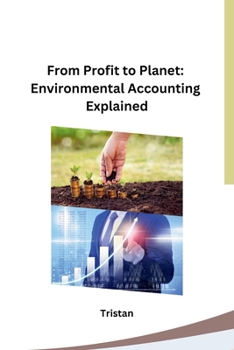From Profit to Planet: Environmental Accounting Explained
Environmental accounting is a crucial aspect of modern business practices that aims to incorporate environmental costs and benefits into financial decision-making. In this subchapter, we will delve into the concept of environmental accounting and its significance in the accounting field.
Environmental accounting involves quantifying and reporting the environmental impact of an organization's activities, products, and services. It goes beyond traditional financial accounting by considering the environmental costs and benefits associated with these activities. By doing so, environmental accounting helps organizations understand the true environmental impact of their operations and enables them to develop strategies for sustainable development.
One of the key components of environmental accounting is the identification and measurement of environmental costs. These costs include expenses related to pollution prevention, waste management, and resource conservation. By tracking and quantifying these costs, organizations can identify areas where they can reduce their environmental impact and improve their overall efficiency.
Additionally, environmental accounting encompasses the measurement of environmental benefits. These benefits can include reduced pollution levels, improved air and water quality, and enhanced natural resource conservation. By quantifying these benefits, organizations can highlight their positive environmental contributions and use them as a basis for promoting their sustainability efforts.
Environmental accounting also plays a vital role in financial reporting. With the growing global concern for environmental sustainability, stakeholders expect organizations to disclose their environmental performance alongside financial performance. By integrating environmental information into financial reports, organizations can provide a comprehensive view of their overall value creation, including their environmental impact.
Furthermore, understanding environmental accounting is essential for accountants and finance professionals. As the role of accountants expands beyond purely financial matters, they need to possess the skills and knowledge to analyze and interpret environmental data. This enables them to provide valuable insights to management and contribute to the development of sustainable strategies.
Related Subjects
Nature




